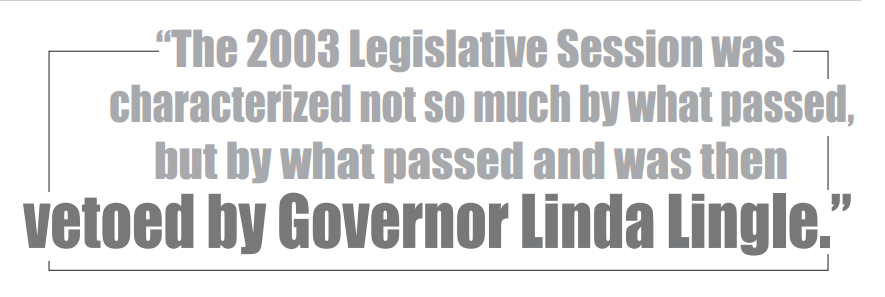• Act 87 was successfully repealed. For the Union, there was concern that Act 87 would interfere with the handling of certain grievances and even workers’ compensation cases.
• The minimum wage to $5.75 effective January 1, 2002 and $6.25 effective January 1, 2004, with no increase in the tip credit, passed.
• The notice period for the Hawaii Dislocated Workers Act was increased from 45 days to 60 days.
• The ILWU successfully passed legislation providing for extended unemployment benefits for former Amfac Sugar Kauai workers, but this was vetoed by Governor Cayetano.
• One of the major issues for the Union was a bill which would have charged the Transient Accommodations Tax (TAT) on the retail price of the room rather than the wholesale price. The Hotel Industry did not expect this bill to move, but the merits of the bill as argued convincingly by the ILWU along with the Hawaii State AFL-CIO, the HGEA and the HSTA. However, as the bill moved, opposition increased until it seemed that the entire hotel industry and the wholesalers were focused on killing the bill. The bill did not pass, but was alive during most of the Session, making it to conference committee.
• The ILWU testified on more than 42 measures before the 2001 Legislature.

2002 Legislative Activity
• “Worker Retention” was a major bill for the ILWU Local 142 in this session. It provided for retention of incumbent employees when a new owner or operator takes over a business. Business associations lobbied heavily against the bill and it was watered down, but it did cross over from the House to the Senate. Unfortunately, the bill did not pass final reading in the Senate on a twelve to twelve vote, with one Senator not voting.
• Health care rate regulation did pass. The ILWU, because of the problems with rising medical premium costs in negotiations, actively supported this bill.
• Another concern of the Union’s was the cost of prescription drugs. The Union and our pensioners worked closely with Representative Roy Takumi and others to pass the Hawaii Rx Program and a Medicaid Waiver bill to lower the cost of prescription drugs.
• An ILWU-supported bill prohibiting employment discrimination because of genetic information also passed, as did a long-term care study and an improvement to the whistleblower law making it illegal to discharge an employee who reports wrongdoing.
• The Home Loan Protection bill, intended to protect Hawaii consumers from predatory lending, did not pass, but did reach the conference committee.
• Death with Dignity legislation dominated the news at the end of the 2002 Session, but did not pass the Senate.
• The ILWU testified on more than 40 measures before the 2002 Legislature.


2003 Legislative Activity
The 2003 Legislative Session was characterized not so much by what passed, but by what passed and was vetoed by Governor Linda Lingle. Legislation supported by the ILWU but vetoed by the Governor included:
• H.B. 1652 — Making an Appropriation to the Medicaid Drug Rebate Special Fund. Governor Lingle made no effort to support Act 75, which could have helped tens of thousands of people in Hawaii with no insurance coverage for prescription drugs; she did nothing to obtain a needed Medicaid waiver from the Bush Administration.
• H.B. 32 — Relating to Education. This bill would have authorized schools to assess and collect annual fees for textbooks. Governor Lingle used this veto to press her argument for school decentralization.
• H.B. 289 — Relating to Education. This bill would have authorized the Superintendent of Education to create DOE Complex areas and advisory boards, building on the strengths of the school principals. Again, this veto was used to press her argument for costly and inefficient multiple school boards.
• S.B. 1088 — Relating to Long-Term Care. After more than 10 years of advocating for a program and funding mechanism to begin to address Hawaii’s long-term care needs, this bill, while not perfect, passed. Governor Lingle vetoed the bill despite the fact that long-term care needs and costs will continue to increase and private insurance is inadequate to address the need.
• H.B. 968 — Relating to Unemployment Benefits. This bill would have encouraged unemployed workers to seek part-time employment by eliminating the income offset against their benefit.
• H.B. 1013 — Relating to Examinations for the Determination of Permanent Impairment. This bill would have provided for mutual consent between the parties to agree to a physician to determine permanent impairment. The Governor thinks that the employer should continue to have the say as to who decides.
• H.B. 290 — Relating to Unemployment. This bill would have authorized the payment of “State Additional Benefits” to unemployed workers if the federal Temporary Extended Unemployment Compensation program was not renewed.
• H.B. 29 — Relating to Meal Breaks. This bill would have provided for a mandatory 30-minute meal break after eight hours of work. Currently, meal breaks are not required by law and are available to most only through collective bargaining.
• S.B. 540 — Making an Appropriation for Agricultural Research and Development. Of the $800,000.00 allocated by the bill, $500,000.00 was earmarked for sugar and $50,000.00 was earmarked for pineapple. The bill was vetoed.
A family medical leave bill (H.B. 389) providing for the use of up to ten days of paid sick leave to take care of a family member with a serious illness became law without the Governor’s signature.
The Hawaii Victims Leave Act also passed into law S.B. 773 that established an alternate base period that could be used for redetermination of entitlement of unemployment insurance benefits also passed into law.
The ILWU testified on more than 64 measures before the 2003 Legislature.
